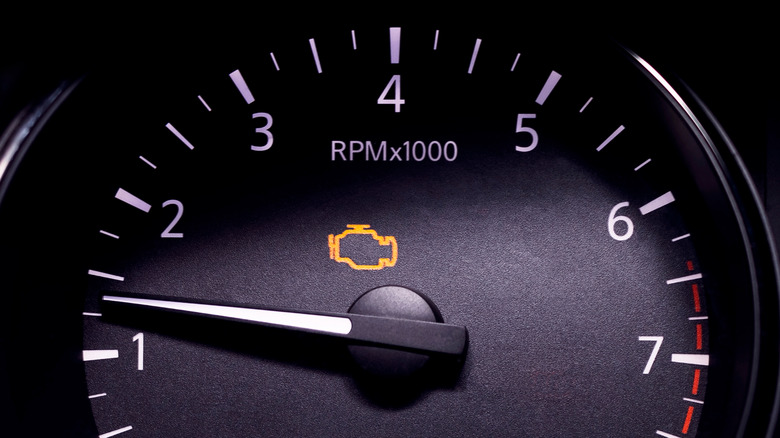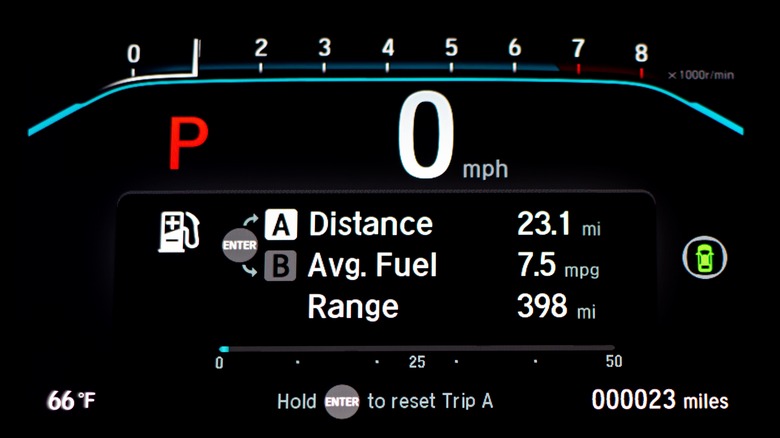
Iryna Inshyna/Shutterstock
The Engine Control Module (ECM) is a crucial component in a car, as it acts as the brain that controls various engine functions. It works in conjunction with multiple sensors, wires, and connectors to ensure optimal performance and efficiency. The ECM manages fuel injection, ignition timing, and other electrical systems, playing a crucial role in maintaining the vehicle engine’s health.
The ECM is also responsible for storing error codes when problems arise in your car. This helps technicians diagnose and understand specific issues easily, enabling quick repairs. Beyond engine management, the ECM ensures that the car meets emissions standards by constantly monitoring and regulating the fuel mixture to prevent excessive pollutant emissions.
Like any other car component, the ECM can malfunction over time, leading to a range of issues that can significantly impact your vehicle’s performance. Recognizing the signs of a failing ECM early can save you from costly repairs and potential breakdowns. Here are some common indicators that suggest your car’s ECM might be malfunctioning.
1. The check engine light is on

virgmos/Shutterstock
One of the most immediate signs of a malfunctioning ECM is the activation of the check engine light. When the ECM fails, it may interpret signals from sensors incorrectly or fail to communicate properly with the vehicle’s engine, causing the light to turn on. While there can be other reasons for the check engine light turning on — from minor issues like a loose gas cap, to major issues like catalytic converter problems — a faulty ECM is a strong possible trigger of the warning that should not be overlooked.
Ignoring the check engine light can lead to more complications, potentially causing damage to the engine and other vital components of your car. Hence, it is always best to take the check engine light seriously and have the vehicle inspected promptly. A mechanic can use a diagnostic tool to read the error codes stored in the ECM and determine if the issue is related to the ECM itself.
2. Poor engine performance

Bulat Silvia/Getty Images
Since the ECM is responsible for managing crucial functions such as ignition timing and the air-fuel mixture, its failure can cause these processes to become erratic, leading to noticeable drops in engine performance. As a result, you may experience a significant reduction in power, making acceleration sluggish or uneven. This can be particularly noticeable during activities that require additional power, such as climbing hills or overtaking other vehicles on the highway. You might notice a significant delay in response when pressing the accelerator pedal, or find that the vehicle lacks power during acceleration.
Moreover, a faulty ECM may cause the engine to misfire, resulting in a rough or jerky ride. Misfires can also lead to vibrations and unusual noises, further indicating that the engine is not functioning properly. In some cases, a bad ECM can make it difficult for the vehicle to maintain a steady speed, or the engine could stall or even shut off unexpectedly. These issues not only affect the driving experience, but also pose potential safety hazards, particularly in situations where consistent engine performance is critical.
3. Inefficient fuel economy

Trong Nguyen/Shutterstock
The ECM also plays a crucial role in managing the fuel injection system, ensuring that the engine receives the correct amount of fuel at the right times. When the ECM is functioning properly, it optimizes the fuel-to-air ratio, contributing to efficient combustion and maximizing fuel economy. However, if the ECM starts to fail, it can no longer accurately regulate the fuel mixture.
A faulty ECM may send incorrect signals to the fuel injectors, resulting in either too much or too little fuel being delivered to the engine. An overly rich fuel mixture can cause the engine to consume more fuel than necessary, leading to decreased miles per gallon (MPG). Conversely, a lean mixture can cause engine performance issues, which may also result in higher fuel consumption as the engine struggles to perform efficiently.
An increase in gas consumption or poor mileage is a telling sign of a failing ECM. In addition to the increased cost of fuel, this inefficiency can also lead to higher emissions, contributing to environmental pollution — not to mention your vehicle would likely fail its inspection as a result of this.
4. The car won’t start

Ljubaphoto/Getty Images
An alarming sign of a bad ECM is when the car won’t start. In some cases, the engine may crank but fail to start, which can be due to the ECM not sending the correct signals to the fuel injectors or ignition system. Alternatively, the engine might not crank at all, indicating a more severe ECM malfunction. This issue can occur intermittently or constantly, making it difficult to detect without a proper diagnosis.
While a no-start condition is oftentimes related to other problems, an ECM failure is a possibility, as it controls critical functions like fuel injection and the fuel-to-air ratio. According to RepairPal, the average cost for an Engine Control Module (ECM) replacement ranges between $1,037 and $1,113, but the exact cost may vary based on your car’s make and model. Since it’s not a component you can typically replace on your own, it’s best to visit a nearby repair shop for assistance.